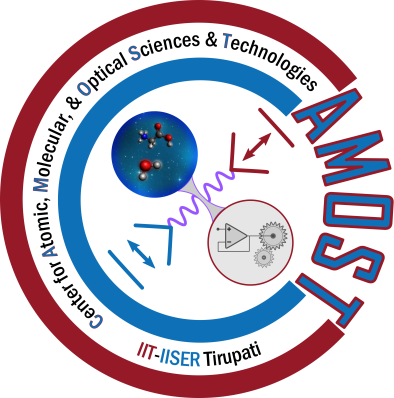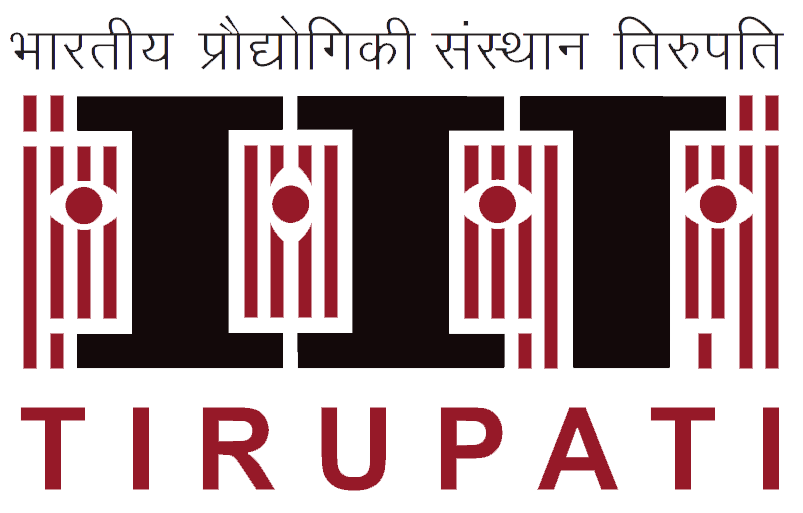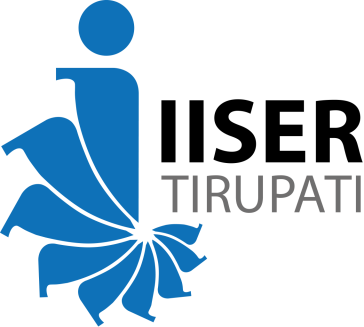CAMOST's Second Anniversary Colloquium Series
The Center for Atomic, Molecular, and Optical Sciences & Technologies (CAMOST), a joint initiative of the IIT Tirupati and the IISER Tirupati, was inaugurated on the eve of the 73rd anniversary of India's Independence Day by Dr. Arabinda Mitra (Scientific Secretary, Office of the Principal Scientific Advisor, Government of India). The second ANNIVERSARY COLLOQUIUM SERIES started on 10th September 2022. See the program details below. A pdf copy of the program can be downloaded from the link: Program: CAMOST 2nd Anniversary.
| Date | Time (PM, IST) | Event |
|---|---|---|
Oct 01, 2022 |
2:30 – 3:30 |
Online Colloquium by Prof. Jan-Michael Rost, Max Planck Institute for the Physics of Complex Systems, Dresden Title: “Dynamics of delocalized electrons in strong laser fields” Abstract: The dynamics of delocalized electrons in periodic or quasi-periodic environments is conveniently described in momentum space, where it couples to the vector potential of the laser field. In contrast to atoms and molecules, the spatial excursion which electrons execute in strong light fields known as quiver amplitude, does not seem to be important at first glance. We will discuss two scenarios, where the quiver amplitude, that is the field strength and the frequency of the light, play a crucial role: (i) backscattering of delocalized electrons from domain boundaries and (ii) excitation and valley polarization in graphene, or more generally, in two dimensional systems with small gaps. |
Sep 10, 2022 |
2:00 – 2:05 |
Opening remarks and ‘welcome’ – Prof. P. C. Deshmukh Adjunct Professor, IITT, and Mentor & Convener - CAMOST |
Sep 10, 2022 |
2:05 – 2:12 |
CAMOST Anniversary report – Dr. Arijit Sharma CAMOST Program Coordinator, IITT |
Sep 10, 2022 |
2:12 – 2:15 |
Report on CAMOST Colloquium Series and Short courses – Dr. Padmabati Mondal (IISERT) |
Sep 10, 2022 |
2:15 – 2:21 |
Address by Prof. K. N. Satyanarayana (Director, IITT) |
Sep 10, 2022 |
2:21 – 2:27 |
Address by Prof. K. N. Ganesh (Director, IISERT) |
Sep 10, 2022 |
2:27 – 2:30 |
Introduction of Prof. Roland Wester (University of Innsbruck) – Dr. S. Sunil Kumar CAMOST Program Coordinator, IISERT |
Sep 10, 2022 |
2:30 – 3:10 |
Online Colloquium by Prof. Roland Wester “Controlled interactions of cold trapped negative ions” Abstract: Negative molecular ions have drawn a lot of attention in recent years, owing to the detection of several molecular anions in cold interstellar molecular clouds. Using photodetachment spectroscopy in cryogenic ion traps we have probed internal quantum states of negative ions and have used this to study quantum state-changing collisions or to perform negative ion spectroscopy. In my talk I will present recent results on the interstellar anion C3N- and on the diatomic anion C2-, a potential candidate for negative ion laser cooling. |
Sep 10, 2022 |
3:10 – 3:15 |
Q&A session following Prof. Wester’s talk will be conducted by Dr. S. Sunil Kumar |
Sep 10, 2022 |
3.15 – 3.45 |
Tea+ΔT |
Sep 10, 2022 |
3:45 – 3:48 |
Introduction of Prof. Aravind Gopalan (IITM) by Dr. Reetesh K. Gangwar (IITT) |
Sep 10, 2022 |
3:48 – 4:28 |
In-person Colloquium by Prof. Aravind Gopalan “Intermolecular coulombic decay in molecules of astrophysical interest” Abstract: ICD is a mechanism whereby excited molecules in weakly bound systems, such as clusters, relax by ionising their neighbours. It is a non-local analogue of Auger decay. Nearly a decade after its prediction in 1997, numerous beautiful experiments measured ICD with either high-intensity lasers or EUV photons. In this talk, we will discuss an unusual ICD that occurs efficiently even between unbound molecules and that too at ambient-light intensities. The implications of this novel ICD on the growth of interstellar molecules will also be discussed. |
Sep 10, 2022 |
4:28 – 4:33 |
Q&A session following Prof. Aravind’s talk will be conducted by Dr. Reetesh Gangwar (IITT) |
Sep 10, 2022 |
4:33 – 4:40 |
Vote of Thanks and concluding remarks by Dr. Vinay Pramod Majety (IITT) |


